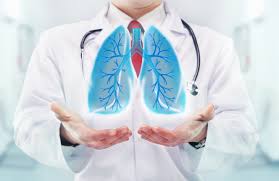- Home
- Editorial
- News
- Practice Guidelines
- Anesthesiology Guidelines
- Cancer Guidelines
- Cardiac Sciences Guidelines
- Critical Care Guidelines
- Dentistry Guidelines
- Dermatology Guidelines
- Diabetes and Endo Guidelines
- Diagnostics Guidelines
- ENT Guidelines
- Featured Practice Guidelines
- Gastroenterology Guidelines
- Geriatrics Guidelines
- Medicine Guidelines
- Nephrology Guidelines
- Neurosciences Guidelines
- Obs and Gynae Guidelines
- Ophthalmology Guidelines
- Orthopaedics Guidelines
- Paediatrics Guidelines
- Psychiatry Guidelines
- Pulmonology Guidelines
- Radiology Guidelines
- Surgery Guidelines
- Urology Guidelines
New self-propelled catheter with earthworm-like peristaltic motion for bronchoscopy

Biopsies of pulmonary lesions are essential for increasing the accuracy of diagnosis and treatment for respiratory illnesses such as lung cancer. Currently, manual biopsies are performed via bronchoscopy. However, the bronchi tends to branch thinner and more complicatedly as it goes to the periphery, which makes it a challenge to reliably choose one and fine-tune the propelling movement. Given the skill disparities in operating doctors as well, it is difficult to reliably reach the lesion with the biopsy forceps, resulting in inadequate diagnosis accuracy.
The development of instruments and mechanisms that can reliably reach the target in the lungs is required for adequately testing with an endoscope, but the looming challenge was finding a mechanism to reliably advance the biopsy forceps to the target even inside the ultrafine and widely branching bronchi.
Now, Prof. Yuichiro Takai of Department of Respiratory Medicine, Omori Medical Center at Toho University and Prof. Hideyuki Tsukagoshi, of Department of System and Control Engineering at Tokyo Tech collaborate in developing the new self-propelled catheter designed to generate travelling waves in multiple chambers just by adding and reducing pressure inside one tube. This allowed for moving forward with peristaltic motion within an ultrafine structure such as a bronchus. This catheter also has an actively curving function for choosing the direction of propulsion, and a flexing drive function for adjusting to changes in line diameter. Their effectiveness was verified using a bronchus model.
The goal is to increase the accuracy of branches which can be propelled, include a camera to collect information on the inside of the bronchi, develop functions applicable to biopsies and treatment, and put instruments to practical use.

Disclaimer: This site is primarily intended for healthcare professionals. Any content/information on this website does not replace the advice of medical and/or health professionals and should not be construed as medical/diagnostic advice/endorsement or prescription. Use of this site is subject to our terms of use, privacy policy, advertisement policy. © 2020 Minerva Medical Treatment Pvt Ltd